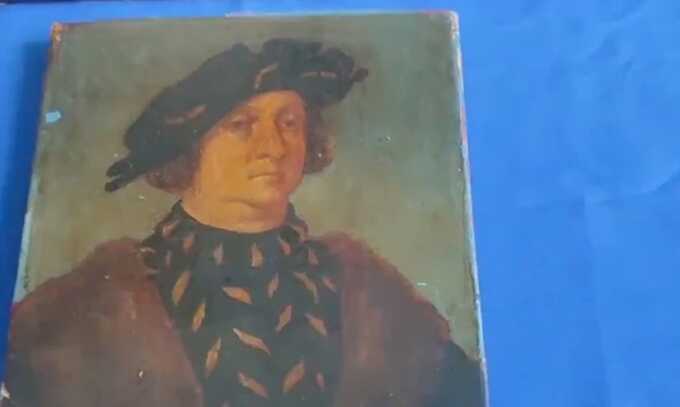French customs officers thwart €1.3m sale of fake Leonardo da Vinci painting

Spanish police make arrest after being notified that export licence had expired and work was found to be a copy
Spanish police have arrested a man whose alleged plan to sell a fake Leonardo da Vinci painting in Italy for €1.3m was thwarted when the work caught the eye of French customs officers.
Although the man had an export licence for the work, which was purported to be a Leonardo portrait of the Italian aristocrat and military commander Gian Giacomo Trivulzio, the licence had expired, prompting customs officers at the Modane border post to contact Spanish police.
According to the export permit, which does not constitute a guarantee of authenticity, the work was a Leonardo valued at €1.3m that was being transported for sale in Milan. Although the licence was genuine, the fact that it was no longer valid meant the attempt to export the work was illegal.
After receiving the alert in July 2022, officers from Spain’s national police travelled to the French border to recover the painting, which was then sent to the Prado in Madrid for expert analysis.
“The experts’ report concluded that the work was a copy of the Milanese portraits painted around the end of the 15th century and the beginning of the 16th century,” the police said in a statement.
“The painting was probably painted, with fraudulent intent, at the beginning of the 20th century. As such, its value is between €3,000 and €5,000, and the painting can categorically be ruled out as a being by Leonardo or any other Italian artist of the time.”
A spokesperson for the force said a Spanish man in his 40s had been arrested in Madrid in connection with the case.
“An export licence isn’t a guarantee of a work’s authenticity,” she said. “In this case, the licence was being used as a means of claiming the painting was original. Once it became apparent that the licence had expired, the painting was confiscated and an investigation was opened. As soon as the investigation determined that this was an alleged case of smuggling, the arrest was made.”
Read more similar news:
Comments:
comments powered by Disqus

































